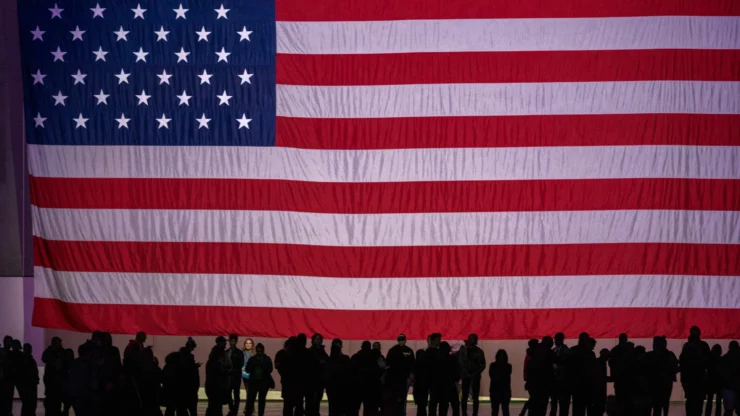
The dramatic events of July this year have shaken not only America, but the entire Western community. The ongoing standoff between the two major American parties, the Democrats and the Republicans, has caused the world to take a different look at the capabilities of the United States.
The fact that Biden stubbornly assured everyone of his ability to lead the United States for another four years, before doing a U-turn overnight, under pressure from senior figures in the Democratic Party, has caused America’s image in the eyes of the world to fade.
A palace coup
Now the media in much of the Global South, noting the diminishing role played by the US have interpreted Biden’s withdrawal from the presidential race as a “quiet palace coup.” The Turkish newspaper Daily Sabah has described it as a kind of democratic coup.
As the Arab News puts it, “when such a great nation cannot protect its own former president, and a contender to be the next one too, then it is only fair to say that this is indeed a colossal failure.”
Much criticism has been directed at the Biden administration’s foreign policy, which can hardly be called a success, whether with regard to the wars in Ukraine and Gaza, or in Afghanistan and other areas of the globe.
The Arab press has clearly concluded that Washington had failed even in its attempts to oppose Yemen’s Houthis, whose attacks were essentially a “technological and symbolic victory.” France’s Le Monde expressed it differently on July 25, in an article with the headline “Western armies powerless to halt Houthi attacks.”
The image of the US is fading
Countries in the Global South are increasingly convinced that Americans excel only at creating problems, and not at solving them. On July 21, Al Jazeera wrote, in a nod to Joe Biden’s statement on his withdrawal from the presidential race, that the “US is the US no matter who is at the helm and there is ‘nothing America can’t do’ in terms of inflicting global agony.”
That said, the website of Saudi TV channel Al Arabiya questions Kamala Harris’ ability to become a leader because “she lacks the presidential qualities found in other Democratic Party candidates.”
In the United States itself, some have expressed dissatisfaction with the way Democratic Party leaders rushed to appoint Kamala Harris as Biden’s de facto successor, bypassing the established procedures. The Black Lives Matter movement has been particularly vocal in its criticism.
Certain European political commentators have recently reached the conclusion that Biden is one of the last adherents of an Atlanticist, or trans-Atlanticist policy, which seeks an alliance between the political powers on both sides of the Atlantic Ocean. Meanwhile, Trump and his running mate James David Vance have already said they want to reassess the relationship between the United States and NATO, as well as America’s contribution to that alliance, and that, as the New York Times put it in an article published on July 22, “under them, the era of US-sponsored European security might well draw to a close.”
Trump has repeatedly said he wants a swift end to the war in Ukraine, even if it entails “the loss of territory in favor of a strengthened and emboldened Russia.”
Bloomberg on July 24 mournfully acknowledged that “We’re looking at a new world in which the great liberal hegemon that is the US is either in retreat from hegemony or liberalism or perhaps both.”
Significantly, one US website, trying to predict Trump’s actions following a victory in the November 5 election, suggested that immediately after the votes are counted, the newly elected president may propose a meeting between the Russian and Ukrainian presidents in Budapest, presided over by himself. The details of such a possible summit would be further worked out in partnership with Hungarian Prime Minister Orbán, through diplomatic channels. It cannot be ruled out that this initiative could be implemented immediately after the inauguration of the US president on January 20, although in such case Kiev might be represented by a president with a different name.
It is safe to say that July 2024 was a great shock not only to the US, but to the West as a whole.
Vladimir Mashin, Candidate of Historical Sciences, political observer, exclusively for the online magazine “New Eastern Outlook”
